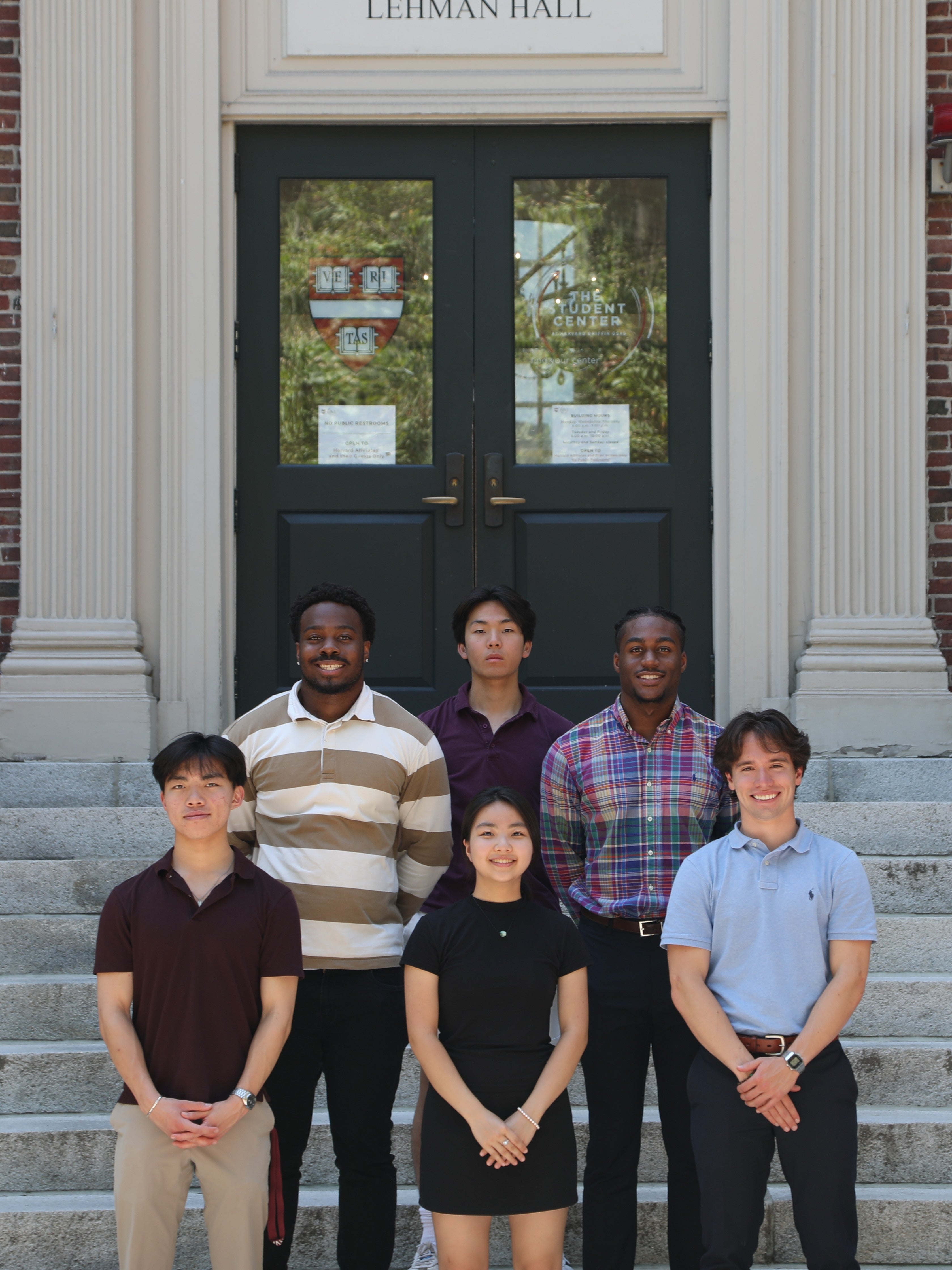By Wu Jiaqi
Abstract
In the digital era, artificial intelligence (AI) has become a pivotal component in various sectors, with its influence on education being particularly profound. This study meticulously investigates the transformative impact of AI tools, with a spotlight on Chat-GPT, on the academic routines of college students. Chat-GPT's ability to expedite access to comprehensive explanations, summaries, and problem-solving support has revolutionized the learning process, enhancing efficiency and accessibility. However, this study also scrutinizes potential negative consequences, such as over-reliance on AI, the authenticity of student work, and the cultivation of critical thinking skills. Employing a mixed-methods approach that includes extensive surveys and in-depth interviews, this research uncovers the nuanced effects of Chat-GPT on students' academic achievements and study habits. The findings provide a dual perspective on AI integration in education, highlighting both opportunities and challenges. This paper contributes to the ongoing dialogue on the role of AI in shaping the future of learning, advocating for a balanced and ethical deployment of these influential technologies and offering a roadmap for future research and policy development.
Thesis
This article explores the transformative impact of Chat-GPT on college students' study habits, focusing on both the benefits, such as enhanced learning efficiency, and the challenges, such as potential over-reliance and academic integrity concerns. It aims to provide insights into how these technologies can enhance learning efficiency while addressing potential issues of over-reliance and academic integrity.
Introduction
The advent of AI in the educational landscape has been transformative, particularly with the advent of tools like Chat-GPT. These tools have not only augmented learning efficiency by providing quick access to explanations and summaries but also
catalyzed a paradigm shift in students' approach to academic challenges. This paper aims to dissect the multifaceted influence of Chat-GPT on college students' study habits, employing a mixed-methods research design to gather and analyze data comprehensively. By examining usage patterns and resultant academic outcomes, this study seeks to offer actionable insights for educators and policymakers, enriching the broader narrative on AI's role in education. The introduction will be further expanded to include a brief literature review, setting the stage for the study's significance and contribution to the field.
Review
This study explores the impact of AI tools like Chat-GPT on college students' study habits, highlighting both benefits and challenges. Chat-GPT enhances learning efficiency by providing quick access to explanations, summaries, and problem-solving assistance, allowing students to engage more effectively with complex material. For example, students can use Chat-GPT to break down dense scientific articles into more digestible parts, facilitating better understanding. However, the research also raises concerns about over-reliance, which can hinder the development of critical thinking and independent problem-solving skills, as well as ethical issues related to the authenticity of student work. Through surveys and interviews, the study offers a comprehensive understanding of how students use Chat-GPT and its effects on their academic performance. The findings underscore the need for educational institutions to provide guidelines for responsible AI use, ensuring that these tools supplement rather than replace personal effort. This research contributes valuable insights to the ongoing discourse on AI in education, advocating for a balanced and ethical approach to integrating technology into learning.
Analysis
Chat-GPT has introduced a transformative shift in how college students engage with their academic work. Traditionally, students spent considerable time and effort comprehending complex concepts and finding relevant information from various sources. With Chat-GPT, students can quickly generate detailed explanations and summaries, allowing them to grasp difficult subjects more efficiently. For example, a student struggling with a dense scientific article can use Chat-GPT to break down the content into more digestible parts, facilitating better understanding. Additionally, Chat-GPT’s ability to provide instant feedback and answers to queries helps students tackle their assignments and study materials more effectively. This immediate support reduces the time spent on searching for information, enabling students to focus more on critical analysis and application of knowledge.
However, the integration of Chat-GPT into study routines is not without challenges. One significant concern is the potential over-reliance on AI for completing academic tasks. While Chat-GPT can enhance learning efficiency, it may also lead students to
depend heavily on the tool, possibly at the expense of developing their independent problem-solving skills and critical thinking abilities. There is a risk that students might use Chat-GPT to complete assignments without fully engaging with the material, which could undermine their learning experience. Moreover, the ease of access to AI-generated content raises ethical questions about plagiarism and the authenticity of student work. It is crucial for educational institutions to establish guidelines and encourage students to use AI tools as supplements rather than replacements for their own efforts. This balance can help ensure that while students benefit from the advantages of Chat-GPT, they also continue to develop essential academic skills independently.

Figure 1 Technological structure of AI education.
AI's influence on learning and instruction has been profound, with adaptive learning technologies emerging as a key area of impact. According to Chen, Chen, and Lin (2020), AI-driven systems can tailor educational content to individual student needs, thereby enhancing the learning experience and improving educational outcomes. These systems use algorithms to analyze students' performance and learning patterns, allowing for the creation of personalized learning paths that adapt in real-time to the student's progress and challenges (Figure 1). This customization helps to ensure that students receive the appropriate level of challenge and support, thereby maximizing their potential for success.
Ethical and Equity Concerns
In addition to adaptive learning technologies, AI has also facilitated more efficient and effective instructional methods. AI-powered tools such as intelligent tutoring systems provide students with instant feedback and support, often mimicking one-on-one tutoring scenarios. These systems can address students' questions and misunderstandings immediately, fostering a deeper understanding of the material. Moreover, AI can assist educators by automating routine tasks such as grading, thereby freeing up more time for teachers to engage in direct instructional activities and personalized student support. These advancements are not only enhancing the quality of education but also making it more accessible and equitable.
To understand the diverse applications of AI in educational settings, it is essential to examine the various techniques employed across different scenarios. Table 1 outlines these techniques, offering insight into how AI is leveraged for tasks such as adaptive
learning, intelligent tutoring, and learning analytics. This comprehensive overview highlights the breadth of AI's impact on enhancing educational experiences and outcomes.

Table 1 Techniques for scenarios of AI education.
Global Adoption and Challenges
The global adoption of ChatGPT in educational contexts reveals a mixed picture of opportunities and challenges. Studies reviewed in various countries (Figure 2) show a broad interest in leveraging AI to enhance learning experiences. However, the contributions vary significantly, with some countries leading the way in research and application (Figure 3). This disparity highlights the need for international collaboration and sharing of best practices to ensure equitable access to AI-driven educational tools.

Figure 2 The reviewed studies conducted in single or multiple countries.

Figure 3 The contribution of each country in the studies.
Impact on Educational Practices
The impact of ChatGPT on educational practices is multifaceted. Research from different countries shows diverse applications and outcomes. For instance, studies conducted in developed countries often focus on advanced implementations and integrations with existing digital infrastructures, while those in developing countries emphasize basic training and familiarization with AI tools. This variation underscores the importance of contextualizing AI adoption to meet specific educational needs and challenges.
Future Directions for AI in Education
As more empirical studies emerge, particularly with the development of newer versions of ChatGPT, it is crucial to continue assessing the long-term effects on education. The initial findings provide a foundation for further exploration, especially in understanding how AI can support personalized learning and overcome existing educational disparities. Future research should aim to include a broader range of countries and educational contexts to build a more comprehensive picture of AI's role in transforming education globally.
Conclusion
In conclusion, the incorporation of AI tools like Chat-GPT into college students' study practices represents a notable progression in educational technology. While Chat-GPT significantly boosts learning efficiency, it necessitates a cautious approach to avoid over-reliance and to ensure the continued development of critical thinking skills. It is imperative for students to employ these tools as aids to, rather than substitutes for, their own efforts. Educational institutions must guide students toward the responsible and ethical use of AI, striking a balance that ensures AI's positive contribution to the educational landscape, fostering both academic success and the cultivation of independent learning competencies.
Works Cited
Chen, L., Chen, P., & Lin, Z. (2020). Artificial Intelligence in education: A Review. IEEE Access, 8, 75264–75278. https://doi.org/10.1109/access.2020.2988510
D’Agostino, S. (n.d.). How AI tools both help and hinder equity in higher ed. Inside Higher Ed | Higher Education News, Events and Jobs.
https://www.insidehighered.com/news/tech-innovation/artificial-intelligence/20 23/06/05/how-ai-tools-both-help-and-hinder-equity
AI-Powered Education: How Artificial Intelligence Will Revolutionize Education.. N.p., Hebooks.
Albadarin, Y., Saqr, M., Pope, N., & Tukiainen, M. (2024). A systematic literature review of empirical research on CHATGPT in Education. Discover Education, 3(1). https://doi.org/10.1007/s44217-024-00138-2





